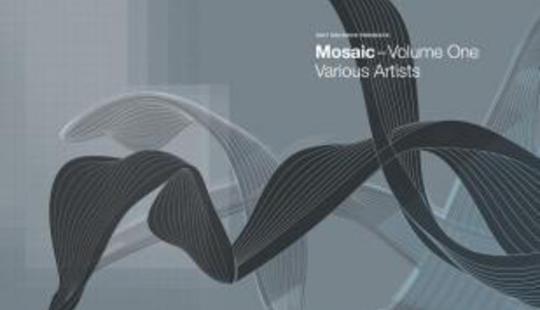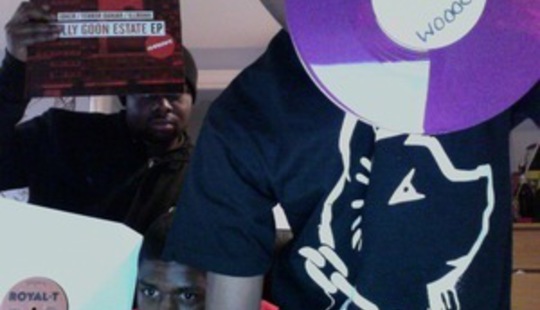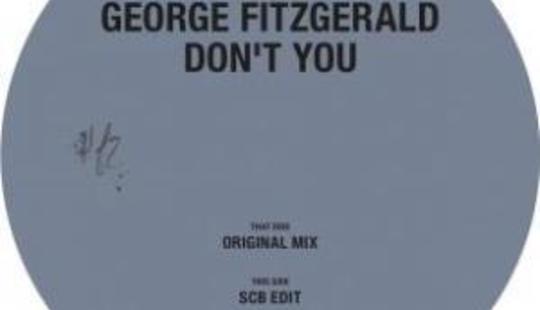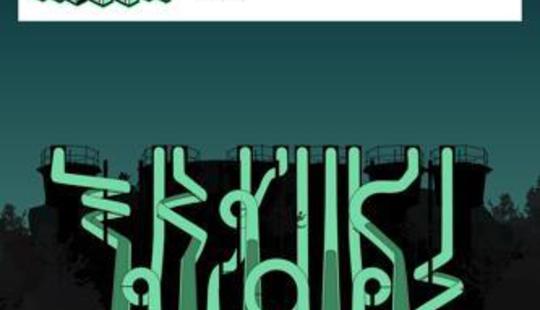Track the hardcore continuum backwards far enough, from dubstep back through two-step, jungle, hardcore, and eventually you cross the Atlantic and land squarely within US boundaries. Sure, we’ve made UK-borne dance music our own over the last fifteen or twenty years, but cut to its heart and you’ll still find the earliest forms of house and techno beating a soft four-to-the-floor pulse.
Sepalcure are acutely aware of this. Both Praveen Sharma and Travis Stewart have been writing music for years, Stewart as the shapeshifting Machinedrum and Sharma both solo and alongside Kranky’s Benoit Pioulard. As a duo their sound takes conscious influence from the melodic, Hotflush ‘n’ Hessle school of dubstep, but with a knowledge of its heritage that stretches far beyond UK garage and its gradual dissolution. Their debut EP Love Pressure, released mid-2010 on Hotflush, rewired bass music as direct descendant of early house, ripping old acapellas to pieces and reassembling them as ethereal collages of the human voice.
“It wasn’t just about influences from the UK,” explains Stewart when we meet in London, in the midst of December’s sudden snowy spell. “It was a lot of stuff - Chicago and New York house, Detroit techno, all sorts.” The duo are grounded in London until further notice by the weather, and both seem slightly drawn after a pair of late night gigs in London on the previous two evenings.
“The stereotypical wobble dubstep was pretty big in the states at the time we started making the Sepalcure stuff,” admits Sharma, “but we were more inspired by the group bringing in lots of different influences, anything that was throwing out the blueprints and mashing up all the differerent genres.” He grins. “The first time I heard diva vocals in a dubstep track I was like ‘this is alright!’”
Both had known one another for years, but only began producing together when Stewart moved to New York. “One night when we were hanging out, I think I was just getting tired of playing videogames and watching shitty horror movies,” he laughs. “I thought, you know what, we should just make a track.” The session went well, and they carried on writing tracks over a swift few weeks. After sending some demos to some friends who ran Dub War – New York’s most respected bass night – they found themselves in Hotflush boss Scuba’s inbox, who swiftly signed them for an EP release. Given how much of an influence the label was on Sepalcure’s developing sound, they explain, it was hugely exciting to become part of it.
Did they find that their past musical incarnations had an effect on the sounds they pieced together as Sepalcure? “A bit,” admits Sharma. “I mean, it’s hard not to, after spending so long making music on our own. But really I think the fun and magic that happened was forgetting a lot of our preconceived tactics, coming together and making new ones. I’d been listening to a lot of the stuff coming out of the UK, and more than anything I was really inspired by that.”
The duo’s second EP, Fleur, is due to drop on Hotflush in a couple of weeks, and appropriately for a follow-up it’s a far more ambitious, coherent statement. Fleur’s tracks are full-grown where Love Pressure’s were embryonic, both in terms of production values and compositional nous. ‘Your Love’ and ‘No Think’ are two of the most nakedly beautiful tracks Hotflush have ever released, the former’s second half gathering momentum to a breathless vocal rush that evokes the euphoric ghosts of old school rave, and the latter weaves layers of percussion and melody into a mesh so thick it’s nigh on impossible to untangle. Phantom voices rear up for a few seconds at a time before plunging back into the mix, twisting themselves into a double helix of dance music DNA. It’s the US to UK journey squared, or even cubed, and even within bass music’s current expansive landscape cuts a particularly unique figure, one only matched by fellow New Yorker FaltyDL’s increasingly fractured, soulful garage beats.
“I feel like music has become less localized due to the expansion of information technology and people trading tracks back and forth,” says Stewart of the world’s internet-assisted cultural globalisation. “You have somebody coming up with this new sound – say in London – and in a couple of weeks someone across on the other side of the world is going to hear that, and be influenced by it. So it’s harder and harder to pinpoint exact locations where any sound is coming from.”
Both are hugely excited by what they see as one of the most fertile periods for electronic dance music since it first emerged. “It almost seems like people have found their sound a lot more easily,” continues Stewart. “There’s definitely some emulating going on now, but it seems like people have become more expressive, defining their own original sound – more original than in the past when everyone was literally carbon-copying these formulas for making a dubstep track.”
“Throwing those blueprints out, I think,” adds Sharma. “That’s the key to all this magic that’s happening right now. I’m well into that. I’m really inspired by the fact that it seems like a lot of producers don’t give a fuck what genre they’re locked into – they don’t want to be locked into a genre! They just want to do what they want to do.”
Sepalcure’s Fleur EP is released on Hotflush on 31st January
And our round-up of the best recent releases…
Various Artists – Mosaic Vol. 1 [Exit Recordings]
 In 2010, all eyes were on dubstep. It was hard to avoid: the sound was everywhere, getting in mainstream club crowds’ faces, taking control of summer festivals, hitting xx fans with double doses of ‘CMYK’. And to be fair, it often deserved the attention. Beneath the surface, though, another innovative development in UK ‘nuum music was quietly expanding its horizons. In a move analogous to dubstep’s treatment of UKG, Instra:mental and dBridge’s Autonomic drum ‘n’ bass stripped away the excesses of that increasingly formulaic genre to leave a supple musculoskeletal structure beneath. The result was often deep and contemplative, drenched in early Detroit's ear for techy melody and with a certain Blade Runner-ish future film noir aesthetic. The duo’s Fabriclive mix was an excellent snapshot of a developing sound, and ASC’s stunning Nothing Is Certain album (on their own Nonplus+ label) further streamlined the sound to its bare, deeply affecting essentials. For more thoughts on the Autonomic sound last year, it’s well worth checking out RA contributor Andrew Ryce’s comprehensive piece on his Futureproofing blog.
In 2010, all eyes were on dubstep. It was hard to avoid: the sound was everywhere, getting in mainstream club crowds’ faces, taking control of summer festivals, hitting xx fans with double doses of ‘CMYK’. And to be fair, it often deserved the attention. Beneath the surface, though, another innovative development in UK ‘nuum music was quietly expanding its horizons. In a move analogous to dubstep’s treatment of UKG, Instra:mental and dBridge’s Autonomic drum ‘n’ bass stripped away the excesses of that increasingly formulaic genre to leave a supple musculoskeletal structure beneath. The result was often deep and contemplative, drenched in early Detroit's ear for techy melody and with a certain Blade Runner-ish future film noir aesthetic. The duo’s Fabriclive mix was an excellent snapshot of a developing sound, and ASC’s stunning Nothing Is Certain album (on their own Nonplus+ label) further streamlined the sound to its bare, deeply affecting essentials. For more thoughts on the Autonomic sound last year, it’s well worth checking out RA contributor Andrew Ryce’s comprehensive piece on his Futureproofing blog.
To open 2011 dBridge’s Exit label has compiled Mosaic Volume 1, a suitably expansive exploration of the sound as it exists now. Featuring tracks from the likes of Scuba (whose Triangulation album's highlights were at drum ‘n’ bass tempo), Skream, Consequence and dBridge himself, it works as a great introduction to a musical shift only just beginning to gain momentum. It’s too long to write fully about in this column, but particularly worth a mention is Distance’s lush ‘Fading’ – a million miles from his trademark metallic dubstep – and Commix’s feedback-soaked dancefloor burner ‘City Section’. Anyone expecting immediately energetic club hits should probably search elsewhere, but for an exciting exploration of what drum ‘n’ bass can still achieve in 2011 this is a strong statement of intent.
S-X – Woooo Riddim [Butterz]
 Given that S-X’s ‘Woooo Riddim’ was the undisputed king of grime in 2010, a perfect, airy synthesis of passive and aggressive suited both to MC chatter and the grind of carefully mixed tracks (check out Ramadanman’s ‘Woooo Glut’ mashup for one particularly great example), it seems a little strange that it’s taken this long to release. Nonetheless, it makes sense that it’s come out through the ever on-it Butterz crew, as they’ve almost singlehandedly been responsible for pushing a spectacular resurgence in instrumental grime. DJ Q’s remix on the flipside follows the same basic template – set up a hefty groove, rinse, repeat – but boosting the original’s peculiar sense of stasis with a wordless female vocal and sandpaper synths, it’s a brilliant new take on an already seminal track.
Given that S-X’s ‘Woooo Riddim’ was the undisputed king of grime in 2010, a perfect, airy synthesis of passive and aggressive suited both to MC chatter and the grind of carefully mixed tracks (check out Ramadanman’s ‘Woooo Glut’ mashup for one particularly great example), it seems a little strange that it’s taken this long to release. Nonetheless, it makes sense that it’s come out through the ever on-it Butterz crew, as they’ve almost singlehandedly been responsible for pushing a spectacular resurgence in instrumental grime. DJ Q’s remix on the flipside follows the same basic template – set up a hefty groove, rinse, repeat – but boosting the original’s peculiar sense of stasis with a wordless female vocal and sandpaper synths, it’s a brilliant new take on an already seminal track.
Morgan Zarate – Hookid EP [Hyperdub]
 Though this is his first release for Hyperdub, Morgan Zarate has been around for some time, which might help to explain why these tracks arrive so huge, so dense, so all-encompassing. A blistering rush of cracked digital soul, lead track ‘Hookid’ dissolves Rustie’s prog tendencies in a bath of sulphuric acid, leaving beats that surge like corrosive foam around a hellishly catchy central melody. ‘Buy Bye’ on the flip captures the sound of vinyl mid-scratch and locks it into a trapped groove that appears to loop ceaselessly while chaos erupts all around. Brilliant, physically overwhelming stuff from a totally unique label that already looks set to continue its winning run into 2011.
Though this is his first release for Hyperdub, Morgan Zarate has been around for some time, which might help to explain why these tracks arrive so huge, so dense, so all-encompassing. A blistering rush of cracked digital soul, lead track ‘Hookid’ dissolves Rustie’s prog tendencies in a bath of sulphuric acid, leaving beats that surge like corrosive foam around a hellishly catchy central melody. ‘Buy Bye’ on the flip captures the sound of vinyl mid-scratch and locks it into a trapped groove that appears to loop ceaselessly while chaos erupts all around. Brilliant, physically overwhelming stuff from a totally unique label that already looks set to continue its winning run into 2011.
XI – Gamma Rain/Medicate [Orca]
 And the prize for most staggering improvement goes to… Toronto’s *XI*, whose releases last year for Immerse and Formant showed great potential but never quite reached ‘essential’ status. This new 12” for Orca continues the label’s winning run, arriving as it does on the heels of Hyetal’s hyperchromatic funk odyssey ‘Phoenix’, and finds XI upping the game so spectacularly it’s a wonder that he isn’t some prodigy suddenly emerging from nowhere, a la Joy Orbison with ‘Hyph Mngo’. ‘Gamma Rain’ swings through bubbling infinity loops above silvery beats, sounding exactly as the name suggests it would: a full on digital storm, both celebratory and melancholy in equal measure. ‘Medicate’ uses the same palette for less immediate ends, though its swing ‘n’ shimmer motion feels tense and tightly wound, poised on the edge of a vertigo-inducing precipice.
And the prize for most staggering improvement goes to… Toronto’s *XI*, whose releases last year for Immerse and Formant showed great potential but never quite reached ‘essential’ status. This new 12” for Orca continues the label’s winning run, arriving as it does on the heels of Hyetal’s hyperchromatic funk odyssey ‘Phoenix’, and finds XI upping the game so spectacularly it’s a wonder that he isn’t some prodigy suddenly emerging from nowhere, a la Joy Orbison with ‘Hyph Mngo’. ‘Gamma Rain’ swings through bubbling infinity loops above silvery beats, sounding exactly as the name suggests it would: a full on digital storm, both celebratory and melancholy in equal measure. ‘Medicate’ uses the same palette for less immediate ends, though its swing ‘n’ shimmer motion feels tense and tightly wound, poised on the edge of a vertigo-inducing precipice.
Moritz Von Oswald Trio – Restructure 2/Digital Mystikz Rebuild [Honest Jon’s]
 The Basic Channel/Rhythm & Sound legend’s recent work as part of the Moritz Von Oswald Trio has more than lived up to the expectations built up by his formidable back catalogue. Both Vertical Ascent and Live In New York expertly balanced physical heft with dub’s spacious sensibility, melding deep techno jams with Sasu Ripatti’s scattered sprays of metallic percussion. If anything ‘Restructure 2’ is even better, setting elements drifting across a four-four heartbeat – turn the volume up loud enough and it’s like discovering the sound of your own body’s metabolism. Its closest analogue ends up as Miles Davis’ seminal ‘Shhh/Peaceful’, where jazz elements float in zero-gee, almost untethered by limiting notions of rhythm.
The Basic Channel/Rhythm & Sound legend’s recent work as part of the Moritz Von Oswald Trio has more than lived up to the expectations built up by his formidable back catalogue. Both Vertical Ascent and Live In New York expertly balanced physical heft with dub’s spacious sensibility, melding deep techno jams with Sasu Ripatti’s scattered sprays of metallic percussion. If anything ‘Restructure 2’ is even better, setting elements drifting across a four-four heartbeat – turn the volume up loud enough and it’s like discovering the sound of your own body’s metabolism. Its closest analogue ends up as Miles Davis’ seminal ‘Shhh/Peaceful’, where jazz elements float in zero-gee, almost untethered by limiting notions of rhythm.
Meanwhile, Mala’s ‘Rebuild’ is one of the DMZ man’s best tracks for a while. Here he wields his intrinsic sense of restraint like a weapon, carving huge, pregnant rifts through the track before letting it explode in a flurry of congas and sub. Listening to the two tracks alongside one another, their similarities in approach become increasingly apparent. Though the final outcomes are very different, both use space and distance as instruments in their own right, kneading silence into tangible, emotional shapes.
George Fitzgerald – Don’t You [Hotflush]
 We’ve been waiting on this one for ages: another example of dubplate culture’s ability to ratchet anticipation to breaking level before accidentally overstepping the mark by waiting that tiny bit too long to actually release a record. Still, George FitzGerald’s ‘Don’t You’ remains a divine slice of Hotflush magic, yet another example of the label’s uncanny ability to uncover talent able to effortlessly balance melody with muscle. Inevitable Joy Orb comparisons are sure to surface once again - how can they not, when the two share both label and serotonin addled post-garage aesthetic? – but FitzGerald’s sound is thicker, bristling with something that’s not quite aggressive but that certainly cuts a formidable figure. Scuba’s SCB remix on the flip is similarly lovely, inverting the original’s direct energy into a taut, slow-burning nine minutes.
We’ve been waiting on this one for ages: another example of dubplate culture’s ability to ratchet anticipation to breaking level before accidentally overstepping the mark by waiting that tiny bit too long to actually release a record. Still, George FitzGerald’s ‘Don’t You’ remains a divine slice of Hotflush magic, yet another example of the label’s uncanny ability to uncover talent able to effortlessly balance melody with muscle. Inevitable Joy Orb comparisons are sure to surface once again - how can they not, when the two share both label and serotonin addled post-garage aesthetic? – but FitzGerald’s sound is thicker, bristling with something that’s not quite aggressive but that certainly cuts a formidable figure. Scuba’s SCB remix on the flip is similarly lovely, inverting the original’s direct energy into a taut, slow-burning nine minutes.
Jam City – Magic Drops [Night Slugs]
 Thankfully we’ve now managed to jettison the heinous use of genre terms like ‘wonky’ to describe the sort of lopsided beats Zomby, Rustie et al piece together, but it’s pretty damn difficult to find any other adjective to describe Jam City’s 'Magic Drops'. Unbalanced, perhaps? Or just plain fucked? Placed alongside the rest of his music – the anthemic lo-fi carnival of ‘Ecstasy Refix’, the driving house of ‘Arpjam’ - it initially comes across as a head-oriented anomaly, a slow, quasi-mechanical take on eskibeat. Whack it on a big system, though, and its tarry consistency takes on a boxer’s stance, swinging heavy knockout broadsides at the gut and temples. There was an excess of hype surrounding Night Slugs in 2010, some of it deserved, some of it far less so. Alongside Girl Unit’s ‘Wut’ and Mosca’s ‘Square One’, the Magic Drops EP falls squarely in the former category: impossibly heavy synth-driven club music with heart and (digital) soul.
Thankfully we’ve now managed to jettison the heinous use of genre terms like ‘wonky’ to describe the sort of lopsided beats Zomby, Rustie et al piece together, but it’s pretty damn difficult to find any other adjective to describe Jam City’s 'Magic Drops'. Unbalanced, perhaps? Or just plain fucked? Placed alongside the rest of his music – the anthemic lo-fi carnival of ‘Ecstasy Refix’, the driving house of ‘Arpjam’ - it initially comes across as a head-oriented anomaly, a slow, quasi-mechanical take on eskibeat. Whack it on a big system, though, and its tarry consistency takes on a boxer’s stance, swinging heavy knockout broadsides at the gut and temples. There was an excess of hype surrounding Night Slugs in 2010, some of it deserved, some of it far less so. Alongside Girl Unit’s ‘Wut’ and Mosca’s ‘Square One’, the Magic Drops EP falls squarely in the former category: impossibly heavy synth-driven club music with heart and (digital) soul.
More to come soon…






















